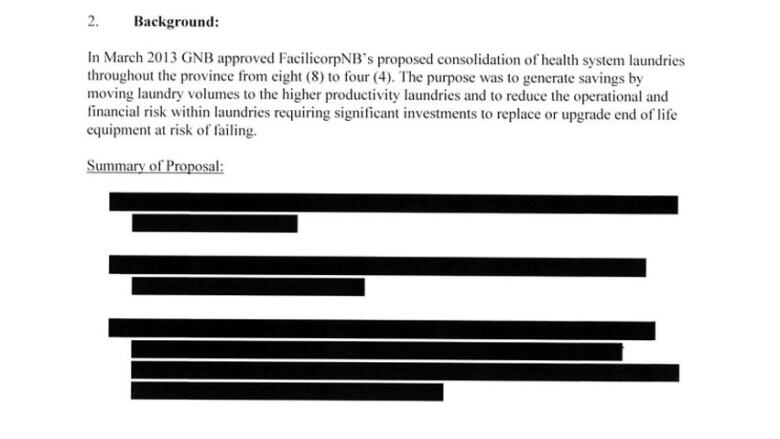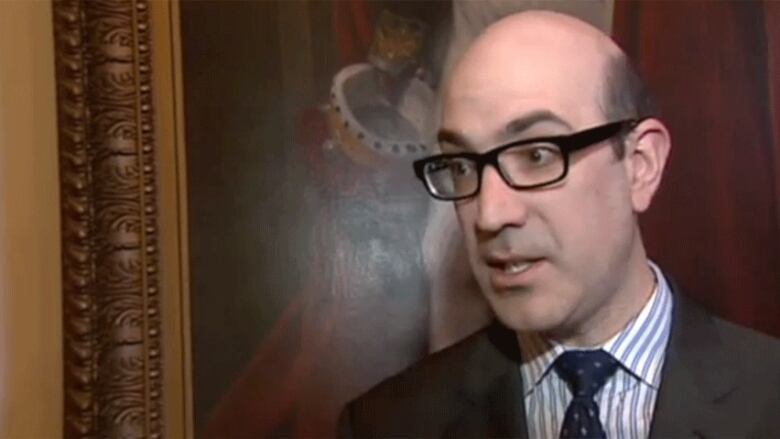Anne Bertrand pushes back on proposed RTI reforms
Government wants to reinstate fees, have power to ignore 'frivolous or vexatious' requests

New Brunswick's information commissioner is pushing back against two government proposals for overhauling the right-to-information system.
A report recommends looking at reinstating fees forpeople who use the Right to Information and Protection of Privacy Act to request government documents and records.
It also suggests giving bureaucrats the power to decide for themselves whether they can ignore a request they consider "frivolous or vexatious" under the act.
That recommendation is now subject to review by Information Commissioner Anne Bertrand, who says she's leery of the provincial government giving itself the power to make that determination.
I think it's of concern to us, perhaps in a conflict of interest fashion, to have the decision-maker decide if the request is frivolous or repetitious.- Anne Bertrand, information commissioner
"I think it's of concern to us, perhaps in a conflict-of-interest fashion, to have the decision-maker decide if the request is frivolous or repetitious," Bertrand told CBC News Monday.
Civil servants consulted in the right-to-information review said that they are often forced to deal with requests under the act that interfere with their work because they're repetitive, systemic, or "incomprehensible."
Officials can ignore those requests, but only with Bertrand's approval. The report says some government bodies are asking that she lose that power.
Liberal cabinet minister Victor Boudreau said earlier on Monday that it should be up to the provincial government to decide on its own.
"Well, who else should it be?" he said on CBC's Information Morning Fredericton.
"There's time involved in putting this together," said Boudreau, who is overseeing the review as part of the provincial government's larger strategic program review.
"There's cost involved in putting this together. And sometimes you wonder, is it really worth all this effort?"
Bertrand questions whether the volume of frivolous or vexatious requests is why the system is jammed.
She saidin her more than four years on the job, the provincial government has asked her only four or five times for approval on handling such requests.
"It raises questions for us, because we haven't seen that traffic here," she said.
Bertrand is also questioning the logic behind another proposal in the report: to reinstate fees.
Fees not behind volume of requests
In the past, applicants had to pay $5 to apply for documentsand also faced the possibility of additional fees, based on the amount of searching and copying that civil servants had to do to turn them over.

The report says the processing of all right-to-information requests in the fiscal year 2013-14 cost taxpayers $680,000.
The report says fees wouldn't recover the full cost of processing requests, but it might encourage applicants to narrow their requests or deter frivolous requests altogether.
Bertrand said, however, that she doesn't think the removal of fees is the reason there are more requests in the system.
"We believe the increase is because the public is aware they can access the information," she said.
While she underscores that it's up to the provincial government to make decisions about how the act works, "I don't think the fees there will make a big difference" in reducing the volume of requests.
Bertrand plans to file her own report on how her office deals with the act in response to the government's report.
Fears of less access
Frequent users of the act said on Monday that the reinstatement of fees and wider powers for the provincialgovernment would lead to less access.

"That's what these information laws are all about. It's all about the taxpayer being able to keep a watchful eye on what their government is doing," he said.
"What request does the government consider to be frivolous? That's the problem. Does the government consider requests related to Atcon to be frivolous? What about requests related to Larry's Gulch?"
The Moncton-based Acadian Association of Journalists has also taken a position against the fee recommendation.
"We really should keep that system free for everybody because it's not just media that makes right to information requests," said AAJ president Nadia Gaudreau.
"It's individuals, it's organizations. If anything prevents even one request being put in, I think it's a real problem that we should all be worried about."
Lacey saidone solution to high RTI costs is for the provincial government to release more information on its own initiative, without forcing citizens, organizationsand media to use the act.
"The reason it costs money is because government does not proactively release the information," he said.
"Taxpayers wouldn't have to go through the RTI processif governments just did what they were supposed to do, which is proactively tell taxpayers what they're doing with our money."
The report raises that idea as well. Boudreau said Monday "maybe there are situations" when the government can do a better job releasing information on its own.
That proposal was also part of a2007 review of the previous Right to Information Act by Donald Savoie.
Since then, the government has posted ministers' expense claims on departmental websites, though there have been occasional complaints they weren't posted quickly enough.












_(720p).jpg)


 OFFICIAL HD MUSIC VIDEO.jpg)
.jpg)



























































































